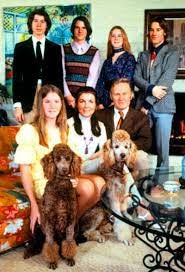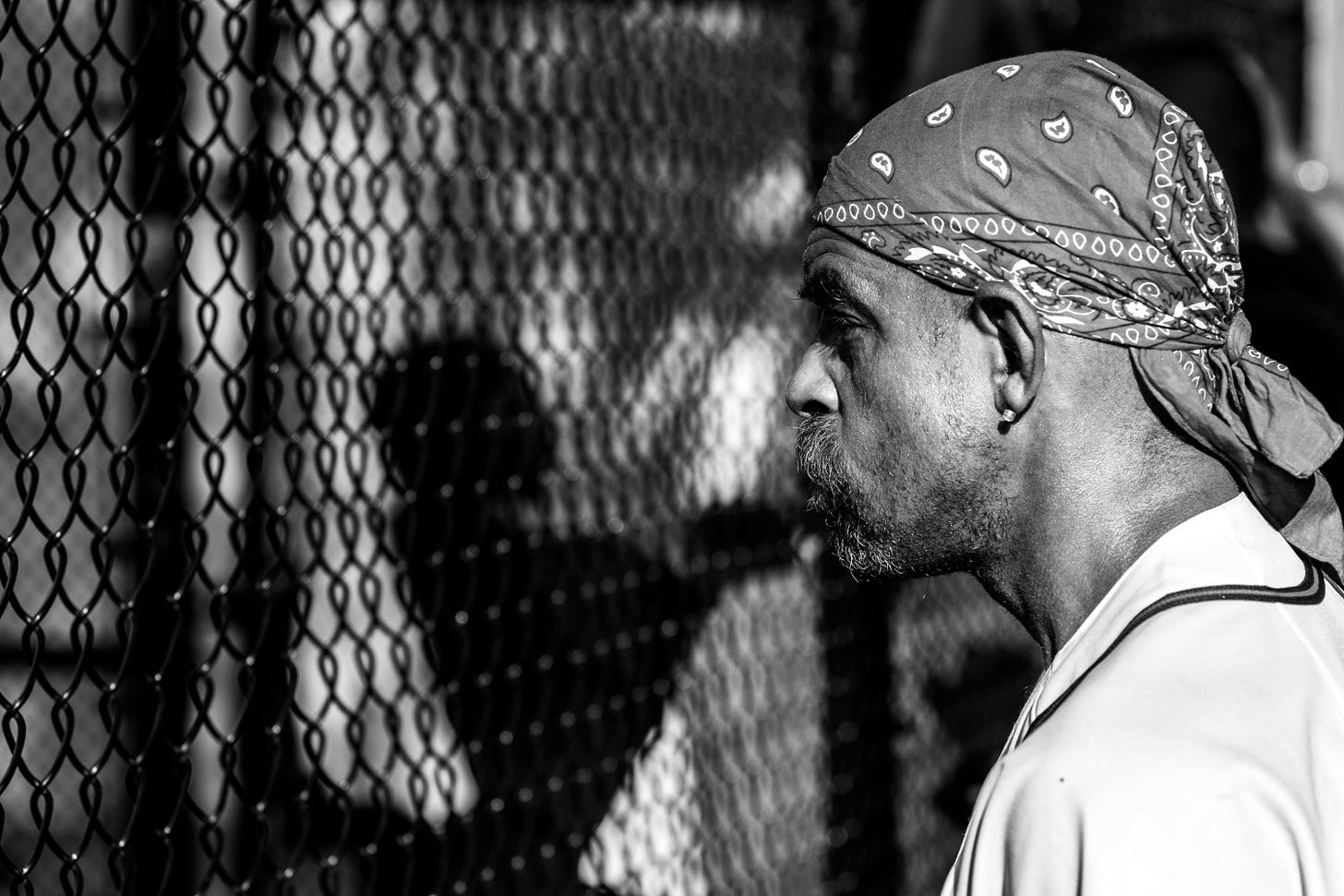Hey,
I hope you’re doing okay and staying strong despite all that life’s throwing at you. Never forget that you’re strong within. Though darkness may last for the night, light always comes in the morning. Always.
Stay positive. Keep pushing. All that is meant to be yours will find its way to you.
Stay Jiggy always.
Want to receive notifications via WhatsApp when I send these letters out? Share your phone number here
Got a musing you think I should explore in my letters? Share it with me here and I might just write about it.
It's Big Brother Naija season.
I saw the popular reality TV show kicked off yesterday. My Twitter TL is about to get clobbered regularly with names of contestants and the drama that comes with them. Only Saturday football is able to take them off the trend table.
Image credit
I'm usually indifferent to the show. Growing up, we couldn't afford DSTV subscription, so I only got to get a glimpse of the show at my friend Junior's house after school hours or during the occasional weekends when we had extra lessons at school.
Over time, I just didn't care about it and most other reality shows. However, I followed it for the first time last year. I occasionally watched the Sunday reviews and was more frequent with it as the show neared its end and things were heating up.
When I heard the show was back, I wondered about the origin of this entertainment format that has the ability to keep people glued to their screens longer than social media, football and almost all other types of entertainment.
Why do you people love reality TV so much?
The first show that implemented the reality tv format we know today was first aired in 1973. It was aired in the US on PBS from January to March 1973 and was called "An American Family".
Produced by Craig Gilbert, the show followed the real life of a relatively unknown family of 7 in California. Pat and Bill Loud were the parents of 5 children and the camera followed their family for 7 months. All this was eventually crammed into 12 one-hour episodes for the show. 10 million Americans were glued.
Gilbert's goal was to portray the American life as it truly was. Unscripted and unguided. The results were kind of real too, lol. The couple divorced during the shooting. Their first son, Lance Loud, opened up about his homosexuality and became one of America's first famous LGBTQ activists & icons.
Eventually, the family (the parents at least) were not happy about the results of the show. They didn't expect that millions of people would watch their lives every day and form an opinion of them. They clashed with the producer and there was no rerun. (Pat and Bill eventually moved back together after a year but never remarried).
Image credit
This was reality at its realest.
Shows like MTV's The Real World (1992), Survivor (2000), Big Brother (2000) and American idol improved on the American family and have inspired most of the reality tv shows we have around the world today.
Modern reality shows while still portraying some 'reality' are less uncoordinated. They are heavily edited (like watchers of Big Brother ReUnion will attest to), sometimes scripted, staged and generally less of reality.
Regardless, people still flock to them in their millions every day, every week around the world.
In Nigeria, one of the earliest mainstream reality shows was the Gulder Ultimate Search. I remember all those nights we spent watching the trials of the first group in 2004 during which Ezeugo triumphed as the winner. It's one of the shows I wish had a longer run time (ended in 2012).
Other popular shows like MTN Project Fame, Nigerian Idol and recently Big Brother have kept millions of Nigerians glued to their screens for weeks.
For context, BBNaija received 900 million votes in 2020. Up from 240 million in the previous year, a 375% increase. - The Guardian
I find that there are three categories of people when it comes to different reality TV shows:
People who watch it and are non-apologetic about it.
People who watch occasionally or to ensure that they are able to participate in discussions about them in their social circles.
People who can't believe people spend hours watching such shows. Usually, they'll have one they used to like and are in a phase where they don't have time for this format anymore or have lost interest. In some cases, they want to show intellectual superiority.
So what do people and experts think about the reason why people love reality shows?
These are the quotes that I found most interesting about why people love reality TV shows:
Reality shows are popular because people like to watch others who are successful. Everyone wants to live a luxurious life and therefore want to see how other people live that sort of life. It is human nature to see what other people have and to want it, and reality shows are a way for people to see that life and wish they had it. These shows are outlets for people to be envious and feel as if that could’ve been them. It also makes people wonder if they had that life, would they act like that. Most people think they wouldn’t, and therefore make themselves feel better. - Brianna Hutchinson, SCTC
Image credit
Psychologists say it is based on the desire to be part of a specific crowd of people. By watching the show, one individual now has a similar interest with a group of people. Also, reality television allows people to imagine gaining fame through media exposure. People can simply sit and fantasise about becoming a celebrity themselves. - Daily American
Reality television in particular gives us a false sense that we really know the people we see on the screen. This sense of having a personal relationship is amplified with the 'reality' label, even though we are aware that its greatly exaggerated. Close ties between family and friends are at all-time lows. Over time, we come to see the folks portrayed on the screen as friends. We identify with their struggles and triumphs. It's much less time consuming to take in a half an hour television show than to connect with a friend.- Dr Jani Scrivani
We live vicariously through the experiences of the reality TV stars, from the safety of our own homes. We don’t actually have to risk our heart or our reputation when we vicariously live through the experiences of the reality show participants. - Dr. Carole Lieberman.
Why do you think people like reality shows so much?
I identify with the reason that we subconsciously aspire for certain types of lives or certain situations that we will never be able to live ourselves. Reality TV shows give us a way to experience what it's like to survive in a jungle, to be in a house with strangers and fulfil our impulses, to overcome our fear and showcase our talents to the world and a lot more.
We are able to do all these while avoiding the actual experience happening to us. Avoiding the embarrassment, heartache, trolling but also missing out on the glamour, fame and more. They also allow us to escape from our realities.
Image credit
It's an interesting phenomenon.
It's ironic that reality TV was originally created to reflect the realities of other people and perhaps help us navigate ours better. Nowadays though, it's more fun to watch shows that make us forget those realities and live in our imaginations.
What do you think about reality TV shows and why do you think people watch them? Share with your friends and see what their responses are.
What did you think of this week's letter?
I love it! ◌ I Like It ◌ Not Bad ◌ I Don’t Like It ◌It’s Awful
This musing was written while listening to King and LionHeart by Of Monsters and Men.
Companies can either pay to have you watch or in some instances, pay to have you watched.
Love always,
Francis.
![Musings in My Head [MIMH]](https://substackcdn.com/image/fetch/$s_!CSau!,w_80,h_80,c_fill,f_auto,q_auto:good,fl_progressive:steep,g_auto/https%3A%2F%2Fbucketeer-e05bbc84-baa3-437e-9518-adb32be77984.s3.amazonaws.com%2Fpublic%2Fimages%2F70030068-5442-485e-9273-b1c22725e34f_200x200.png)

![Musings in My Head [MIMH]](https://substackcdn.com/image/fetch/$s_!CSau!,w_36,h_36,c_fill,f_auto,q_auto:good,fl_progressive:steep,g_auto/https%3A%2F%2Fbucketeer-e05bbc84-baa3-437e-9518-adb32be77984.s3.amazonaws.com%2Fpublic%2Fimages%2F70030068-5442-485e-9273-b1c22725e34f_200x200.png)
![Musings in My Head [MIMH]](https://substackcdn.com/image/fetch/$s_!tMBS!,w_152,h_152,c_fill,f_auto,q_auto:good,fl_progressive:steep,g_auto/https%3A%2F%2Fbucketeer-e05bbc84-baa3-437e-9518-adb32be77984.s3.amazonaws.com%2Fpublic%2Fimages%2Fc0b8b3c0-5198-4ed9-83ea-03f17f357e31_2135x2135.png)













Share this post